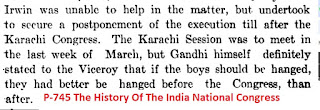Bhagat Singh (Radical or Revolutionary? )
and dilemma of Power Politics
(94rth death anniversary)
The Bhagat Singh case was a pivotal moment in Indian history, exposing the flaws of the British justice system and challenging the influence of Mahatma Gandhi. The British colonial rulers had inadvertently fueled radicalization, but they were determined to crush revolutionary activities. Bhagat Singh's story has a personal connection for Stavinder Singh Juss, whose family migrated from Hoshiarpur, Punjab, to East Africa in 1900. Despite being born in East Africa, Stavinder feels a strong link to his ancestral land thanks to Bhagat Singh's legacy. The British government executed Bhagat Singh as a terrorist, but 94 years later, he remains a symbol of resistance across South Asia, not just in Lahore or Punjab. In the eyes of the public, Bhagat Singh is not a terrorist or radical, but a revolutionary who continues to inspire. His case also highlighted the misuse of terrorist laws, a concern that remains relevant today. The trial was marred by controversy, with many questioning its fairness and legitimacy. That is why Satvinder demanded in the interview to reopen the case in Supreme Court because its last Chief Justice Qazi Isa reopened Bhutto case after 50 years.
A video Clip of the interview
Satvinder Juss is
Professor at King's College
Studied Law at University of Cambridge
Lives in London, United Kingdom
The interview aired at 94rth death anniversary of young Punjabi revolutionary at MastFM103 in its Punjabi radio show Lok Lhar in Lhore studio
Listen complete Interview, Click HERE
Few Old Links
At Bhagat Singh 85th Anniversary







No comments:
Post a Comment